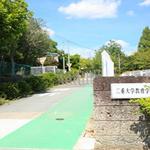Mie University (Mie University, referred to as "Mie University") is a national university located in Tsu City, Mie Prefecture, Japan. It was founded in 1874 and officially became a new university in 1949. Mie University is a comprehensive university, especially in the fields of medicine, engineering, education and humanities. The following is a detailed introduction to Mie University:
Overview
Founded: 1874
Nature: National University
Location: The main campus is located at 1577 Edo Bridge, Tsu City, Mie Prefecture
Number of students: About 10,000 (including undergraduates and graduate students)
Educational philosophy
Mie University is committed to cultivating talents with international vision, innovation and social responsibility through high-quality education and research activities. The school emphasizes practicality and application, and encourages students to actively participate in social services and international cooperation projects.
Departments and Faculties
Mie University has the following departments and disciplines:
Faculty of Letters: Cultural Studies, Law, Economics, Education
Faculty of Education: School Education, Career Education, Special Education
Faculty of Science: Mathematics, Physics, Chemistry, Biology, Earth and Planetary Sciences
Faculty of Medicine: Medicine, Nursing
Faculty of Engineering: Mechanical Engineering, Electrical and Electronic Engineering, Molecular Materials Engineering, Architecture, Information Engineering, Physical Engineering, Resource Recycling, Symbiotic Recycling, Biosphere Life Sciences
Faculty of Pharmacy: Pharmacy
Agriculture Department: Department of Bioresource Sciences, Department of Environmental Sciences
Graduate School
Graduate School of Humanities: Master's Program (Cultural Studies, Law, Economics, Education), Doctoral Program (Cultural Studies, Law, Economics, Education)
Graduate School of Science: Master's Program (Mathematical Sciences, Physical Sciences, Chemistry, Biological Sciences, Earth and Planetary Sciences), Doctoral Program (Mathematical Sciences, Physical Sciences, Chemistry, Biological Sciences, Earth and Planetary Sciences)
Graduate School of Medicine: Master's Program (Medicine, Nursing), Doctoral Program (Medical Science, Nursing)
Graduate School of Engineering: Master's Program (System Engineering, Material Science, Regional Technology Innovation, Regional Culture, Symbiotic Environment, Science Education, Nursing, Social Science, Biosphere Life Science, Special Support Education, School Education, Medical Science, Resource Recycling), Doctoral Program (System Engineering, Material Science, Regional Technology Innovation, Regional Culture, Symbiotic Environment, Science Education, Nursing) =Major, Social Science, Biosphere Life Science, Special Support Education, School Education, Medical Science, Resource Cycle Science)
Pharmacy Graduate School: Master's Course (Pharmacy Major), Doctoral Course (Pharmacy Major)
Agricultural Graduate School: Master's Course (Bioresource Science Major, Environmental Science Major), Doctoral Course (Bioresource Science Major, Environmental Science Major)
Features
Seaside Campus: Mie University is named "Seaside Campus" because of its geographical location close to the sea. All departments are concentrated near Kintetsu Edobashi Station. The environment is beautiful and suitable for study and life.
Medical Department: Mie University's Medical Department is one of its most famous departments. It has high-level education and research facilities and is an important medical center in Mie Prefecture.
Agricultural Department: It has a long history in agriculture, forestry and fisheries, and is committed to solving agricultural and environmental problems.
International Cooperation: Mie University actively participates in international exchange and cooperation projects and has established cooperative relations with universities and research institutions in many countries.
Ranking
Mie University enjoys a high reputation in many disciplines, especially in medicine, engineering and agriculture. Its national ranking varies according to different ranking agencies, but it is generally at an upper-middle level.
Cost
Tuition fees: The tuition fees of national universities in Japan are relatively uniform, and the tuition fees for undergraduates are approximately 535,800 yen/year (for reference only, please refer to the latest official information for specific fees).
Other expenses: Including accommodation fees, living expenses, etc., which will vary according to individual circumstances.
Campus
Facilities: The campus is equipped with modern teaching buildings, laboratories, libraries, sports facilities, etc., providing students with a good learning and living environment.
Accommodation: A variety of dormitories are provided, including single rooms, double rooms, etc., suitable for students with different needs.
Contact information
Address: 515-8577 1577 Edobashi, Tsu City, Mie Prefecture
Tel: +81-59-231-9111
-
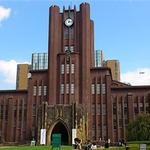
The University of Tokyo
-
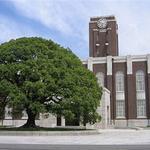
Kyoto University
-
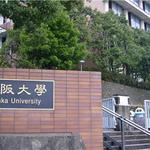
Osaka University
-
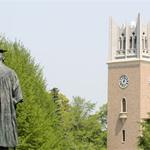
Waseda University
-
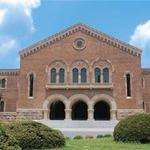
Hitotsubashi University
-
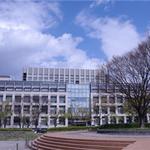
Nagoya University
-
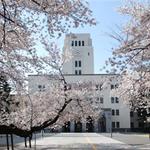
Tokyo Institute of Technology
-
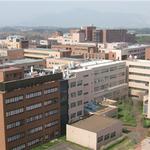
University of Tsukuba
-

Keio University
-
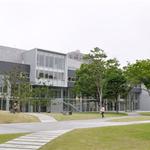
Tohoku University
-

Mesoamerican University
-

Istmo University
-

Mariano Galvez University of Guatemala
-

Regional University of Guatemala
-

Galileo University
-

Francisco Marroquín University
-

Rafael Landívar University
-

University of the Valley of Guatemala
-

University of San Carlos of Guatemala
-

Technological Institute of Tlaxcala Plateau
-

Golfo University
-

Technological University of South Sonora
-

Technological University of Huejotzingo
-

Tizimín Institute of Technology
-

Chilpancingo Institute of Technology

